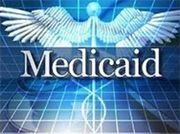- Could Your Grocery Store Meat Be Causing Recurring UTIs?
- Are You Making This Expensive Thermostat Error This Winter?
- Recognizing the Signs of Hypothyroidism
- 10 Strategies to Overcome Insomnia
- Could Artificial Sweeteners Be Aging the Brain Faster?
- Techniques for Soothing Your Nervous System
- Does the Water in Your House Smell Funny? Here’s Why
- Can a Daily Dose of Apple Cider Vinegar Actually Aid Weight Loss?
- 6 Health Beverages That Can Actually Spike Your Blood Sugar
- Treatment Options for Social Anxiety Disorder
Insurance Status May Affect Cancer Outcome: Study


A new U.S. study finds that cancer patients who don’t have insurance — or who get it through the federal health insurance program for the poor (Medicaid) — are at much higher risk of poor medical outcomes than other people.
They’re more likely to have advanced cancer when they’re diagnosed, less likely to be treated with surgery or radiation and more likely to die of their disease, researchers report.
The findings don’t explain the discrepancies, and they don’t say anything about how health care reform might change the fates of poor patients with cancer. Still, they offer a worrisome picture of the American health care system in the years right before the Affordable Care Act, or Obamacare, as some call it, was passed.
“We were surprised to find that patients without insurance were twice as likely as those with insurance to present with cancer that’s spread from the place where it first started,” said study author Dr. Gary Walker, a radiation oncologist at the University of Texas MD Anderson Cancer in Houston. “Even when adjusting for many different factors, patients were still more likely to die if they had Medicaid coverage or no insurance.”
In fact, up to 33 percent of the cancer patients without insurance or with Medicaid died within two years of diagnosis, compared to just 14 percent of those with other kinds of insurance.
The study authors launched their research because there’s little information about how having insurance affects the diagnosis and treatment of cancer, Walker said.
The researchers examined national cancer statistics from 2007 to 2010 for people aged 18-64; all the patients suffered from at least one of the 10 deadliest types of cancer. The study focuses on the insurance status of the cancer patients and their diagnosis, treatment and fate during the three-year period.
Overall, about three-fourths received treatment through surgery, radiation or both. Only 62 percent of the uninsured received those types of treatments, compared to 68 percent of those with Medicaid and 80 percent of those with other kinds of insurance.
“Patients without insurance often times are forced to wait until their symptoms are very advanced before seeing a doctor, and patients without Medicaid or private insurance typically cannot afford costly surgery, radiation therapy and chemotherapy,” explained study co-author Dr. Usama Mahmood, an assistant professor with the department of radiation oncology at Anderson. “And there may be other social factors that hinder their ability to receive cancer care.”
Dr. Karl Bilimoria, director of the Surgical Outcomes and Quality Improvement Center at Northwestern University’s Feinberg School of Medicine in Chicago, added that waiting to see a doctor until cancer is advanced may translate to less surgery or radiation. “If the stage of disease is more advanced, these therapies may no longer be as crucial as systemic therapies such as chemotherapy,” he said.
As for deaths from cancer, the researchers adjusted the statistics so they wouldn’t be thrown off by factors like high or low numbers of patients who were of certain genders, ages, races and other traits. They found that those on Medicaid or without coverage were still 44 percent to 47 percent more likely to die of cancer over two years.
In the big picture, Bilimoria said, the results aren’t surprising: “We have seen these results many times before.” But they’re still important because “it is critical to ensure that all patients are treated fairly and receive the best possible care,” he said.
Under health care reform, it is much easier for many people to get insurance and some states are expanding the number of poor people who are eligible to get coverage through Medicaid. Many plans are required to offer colorectal cancer screening for people over 50.
The expansion of insurance “has provided millions more Americans access to insurance, and could perhaps improve the survival of those patients who develop cancer,” study co-author Mahmood said.
Still, “we need to be sure that we are not only offering people insurance but also that it is a useful form of insurance that allows them access to care and, more importantly, access to timely cancer care,” Bilimoria said.
The study was published online Aug. 4 in the Journal of Clinical Oncology.
More information
For more about health care reform, try the federal government at healthcare.gov.
Source: HealthDay
Copyright © 2026 HealthDay. All rights reserved.










